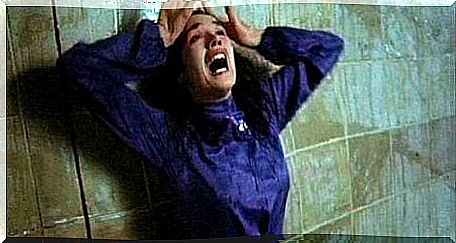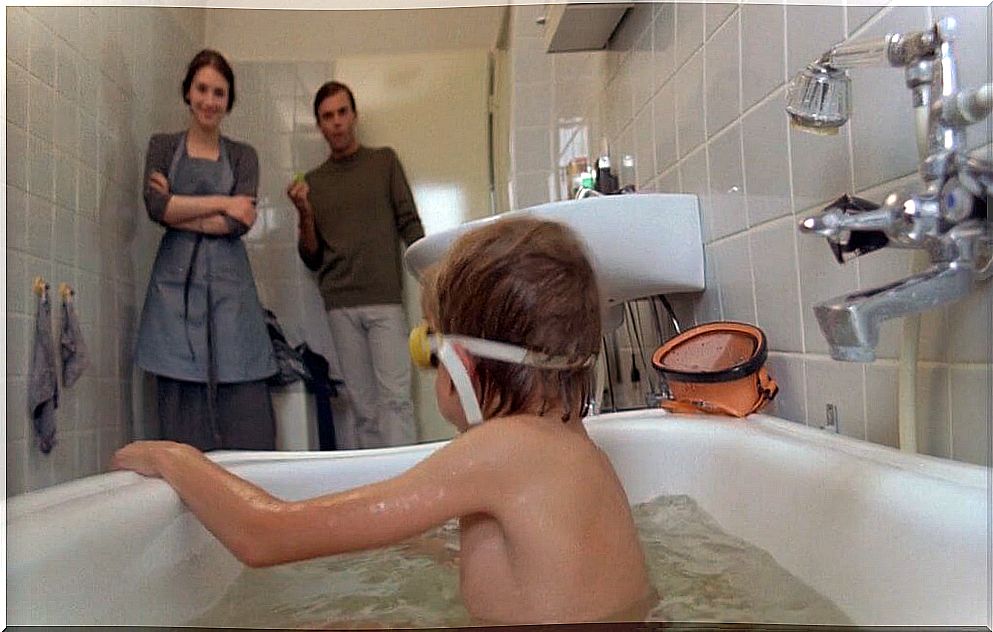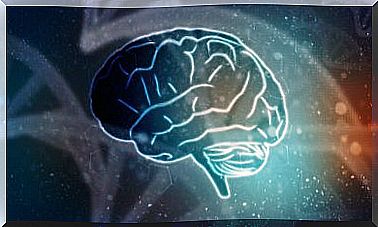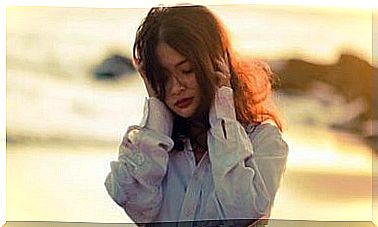Possession: The Hell Of Jealousy

When Andrzej Zulawski premiered La Posesión , back in 1981, the controversy was served. The film was too provocative, too scandalous for audiences at the time. For this reason, the film had to be edited for approval in the United States and, although it had some acceptance in Europe, the figures at the box office were quite discreet.
Zulawski’s story was inspired by his own experiences of a traumatic divorce, a divorce that involved a real swing of emotions. The film, although it rests on a paranormal plot, feeds on these emotions, the anxiety and anguish that human beings can experience when faced with a situation that they cannot control.
In the cinema, as in any artistic manifestation, there are cases in which a work is revalued over the years. The passage of time seems to have proved the Polish filmmaker right and La Posesión currently has the backing of critics. Already elevated to the category of cult film, the film has proven to be a timeless and disturbing film however you look at it.
Horror not only resides in the paranormal, but in the everyday. Zulawski’s film performs a kind of simile or metaphor between the fantastic and the real elements. It all begins in a Germany still divided by the wall, in the home of a family in which jealousy breaks out, generating a suffocating and chilling atmosphere.
Few horror films age so well, since fear is something cultural that depends on a time and a place, but Zulawski appeals to the universal. Anguish, screams and guts make up a film that, far from delighting us, bothers us. A game that will end up taking us to the fantastic element and in which the doppelgänger will have an absolutely disturbing role.
” loading = “lazy” width = “500” height = “281” src = “https://www.youtube. com / embed / uDpFpzbwfiw? feature = oembed “frameBorder =” 0 “allow =” accelerometer; autoplay; encrypted-media; gyroscope; picture-in-picture “allowfullscreen =” “]
The evils of the 20th century
After the success of The Exorcist (William Friedkin, 1973), horror movies underwent changes. The genre opened the door to flirting with drama and exploring new avenues, bloodier, more visual, and undoubtedly more uncomfortable. Zulawski seems to have taken these ingredients to the extreme in a suffocating, irreverent and controversial film. And it is that terror, per se , should not be a child’s thing; the terror must manage to disturb the spectator, make him stir in the armchair.
What is interesting about La Posesión is not only the discomfort it can generate, but the depth and universality of the terror it evokes. Many are the movies about demonic possessions, but few approach it from the perspective that the Zulawski film does. In La Posesión , we not only have a disturbing element from an unknown or fantastic world, but an absolutely real possession that derives from excessive and obsessive jealousy.
Can we catalog The Possession within the horror genre? Without a doubt, but there is also room for other readings and, there, in part, lies the key. Sam Neill and Isabelle Adjani play a marvelous marriage made up of Marc and Anna. Marc spends time away from home due to his work and, after returning from a mission, finds his wife remarkably changed. Soon, he will discover that Anna has been unfaithful and jealousy will invade Marc.
The terror resides in the everyday, in the drama that heads this marriage, in their intense fights and in a woman who becomes unstable at times. The victim of it all? The son of the marriage, an absolutely neglected child who suffers the consequences of the instability of his parents.
Zulawski wrote the script shortly after their divorce, from a turbulent time in his life. And far from telling us a linear story, he lets himself be carried away by passions, by that sway of emotions that human behavior triggers.
The monster is shown on the scene in a literal sense, we see a quasi infernal being take over Anna; as does her husband, a human driven by jealousy, by an inordinate desire that will eventually lead to obsession.
The Possession : between tragedy and terror
Possession is an uncomfortable film, which annoys the viewer because of the cruelty of the emotions it raises. The gore, in turn, makes an appearance and the family drama merges with the paranormal. The first minutes of footage do not seem to warn of a horror of a fantastic nature, although the credit titles are accompanied by a music and a structure that the public will immediately identify with the horror genre.
Zulawski does not pretend to show us endearing characters, but the darkest of human nature . Is it innate evil? Is it the fruit of our experiences? Horror is breathed in every corner of a Berlin still divided by the wall, of a city in the midst of the Cold War. This scenario is dark, cold and bleak, it almost seems to establish a parable between the characters and their suffocating relationships with the political and social context in which the action takes place, but also with divorce and obsessions.
Instability, irrational love and pathological jealousy blend in with space and with the fantastic element, with that being that drives Anna crazy and that will unleash the blood.
Zulawski takes care of the staging in detail, the colors are completely cold from the spaces to the characters themselves, the choppy and contrapicked angles alternate building feelings of anguish and terror. The pace in this descent into hell is totally dizzying, the camera follows the characters, hides, moves with them and stops on their faces.

Possession immerses us in the discomfort and hopelessness produced by what we have before our eyes. And all this in the midst of an infernal chase, a game of doppelgängers and metamorphosis that leaves us breathless, without an iota of hope. It is as if Zulawski wants to take control of our fears, those of the past, the irrational ones, but also those of the present and those more credible.
Likewise, women are presented as the antithesis of the conventional, highlighting all that is undesirable for the woman of the time. Adjani plays a woman who neglects housework and her own son, capable of leaving everything for a maddening debauchery. The doppelgänger Anna is introduced simultaneously, assuming the counterparty, kind woman overflowing with maternal instinct.
The camera suffocates the protagonists, wants to push them to the limit and the viewer is filled with anxiety. It is played with the angles, colors, faces and movements of the actors. Actors who are taken to the extreme and, far from embodying beauty, show the darkest and most tragic face of the human being. The drama is accentuated, the film is in crescendo towards horror, towards the viscera that appear on the screen.
In this way, La Posesión is a volcano of emotions, an experiment in how to envelop the viewer in a devastating, tragic and terrifying atmosphere.









